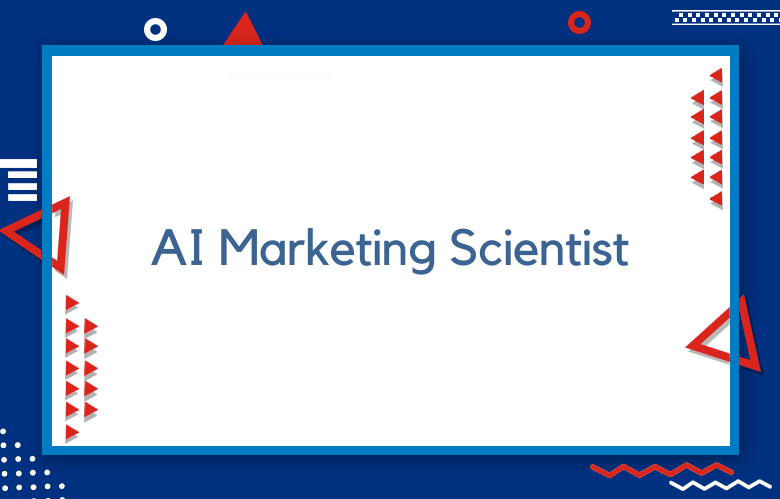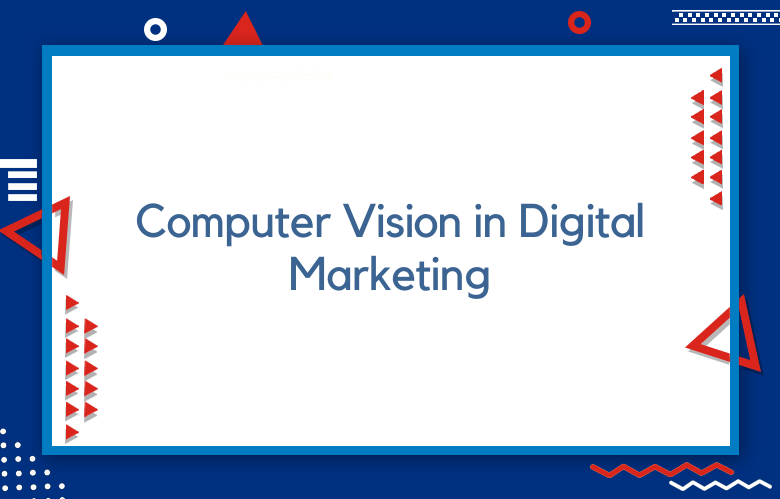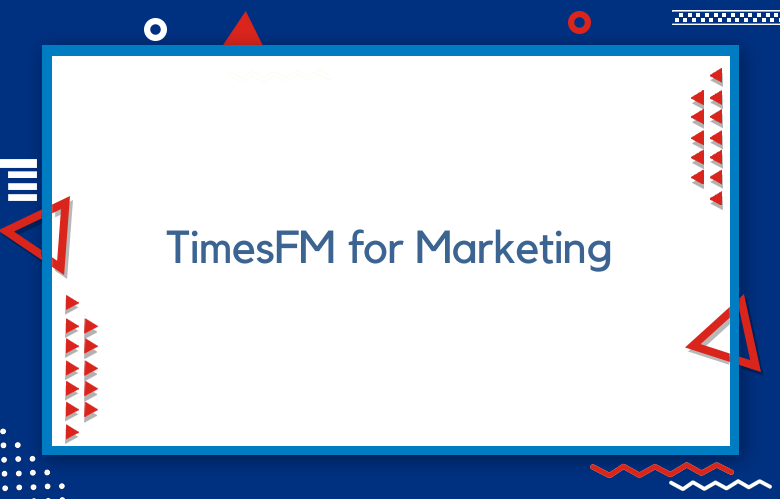What is a AI Marketing Specialist?

Imagine this: did you know that by 2025, the AI marketing scientist field is projected to reach a value of $40.2 billion globally? As an AI enthusiast, I am excited to delve into this cutting-edge technology that revolutionizes marketing strategies. Harnessing the power of artificial intelligence, marketers can analyze vast amounts of data swiftly and accurately to drive targeted campaigns and enhance customer experiences. Join me on this journey as we explore how AI marketing scientists are reshaping the future of digital marketing through advanced algorithms and predictive analytics.
Key Takeaways
Understand the role of an AI marketing scientist in leveraging artificial intelligence for marketing strategies.
Implement AI technologies to enhance marketing campaigns and improve decision-making processes.
Prioritize ethical considerations when deploying AI in marketing to maintain customer trust and transparency.
Stay updated on the latest trends and tools in AI marketing to remain competitive in the evolving landscape.
Optimize marketing campaigns using AI insights for personalized customer experiences and targeted messaging.
Harness the power of AI to drive business growth through data-driven strategies and enhanced customer engagement.
Defining AI Marketing Scientist
Key Responsibilities
AI marketing scientists define the strategic direction for AI implementation in marketing, ensuring alignment with business objectives. They lead cross-functional teams to drive AI initiatives, fostering innovation and growth. They also develop and oversee AI governance policies to ensure AI technologies’ ethical and practical use.
Essential Skills
To excel, AI marketing scientists must master data analysis and interpretation skills to derive insights from complex datasets. Proficiency in various AI technologies and tools is crucial for implementing cutting-edge solutions. Moreover, strong communication and stakeholder management skills are essential for effective collaboration and project execution.
Role Importance
The role of an AI marketing scientist is pivotal in driving organizational growth through AI-driven strategies that enhance customer engagement and conversion rates. By ensuring the alignment of AI initiatives with business objectives, they contribute significantly to overall business success. Furthermore, they spearhead the transformation of marketing processes through AI, optimizing campaigns for maximum effectiveness.
AI in Marketing Strategies
Transforming Industries
AI revolutionizes customer engagement strategies by efficiently analyzing data for personalized marketing campaigns.
Enhancing operational efficiency is achieved through AI automation, streamlining repetitive tasks for increased productivity.
AI solutions disrupt traditional marketing approaches by providing real-time insights and predictive analytics for strategic decision-making.
Strategy Enhancement
Implement AI strategies to optimize marketing performance, leveraging machine learning algorithms for targeted audience segmentation.
Aligning AI initiatives with long-term business goals ensures sustainable growth and competitive advantage in the market.
Enhance decision-making processes by harnessing AI insights to make data-driven marketing decisions effectively.
Customer Engagement
Personalize customer interactions using AI algorithms to deliver tailored experiences based on individual preferences and behaviors.
Improving customer satisfaction is possible through AI-driven solutions proactively anticipating and meeting customer needs.
Enhance customer journey mapping with AI analytics to create seamless experiences across all touchpoints for enhanced engagement.
AI Technologies Impact
Process Automation
AI technologies revolutionize marketing through process automation, enhancing operational efficiency significantly. By leveraging AI, businesses can streamline marketing operations effortlessly, reducing manual tasks. This automation helps in optimizing resource allocation efficiently, ensuring maximum productivity.
Streamline marketing operations through AI automation.
Optimize resource allocation using AI predictive models.
Improve ROI by leveraging AI for process optimization.
Customized AI solutions cater to specific business requirements, boosting overall performance and customer engagement. These tailored solutions are designed to address unique challenges effectively. Implementing next-best-action strategies enhances customer interactions and increases brand loyalty.
Develop tailored AI solutions for unique business needs.
Implement the following best action strategies for customer engagement.
Enhance digital media efficiency through custom AI frameworks.
Data Science Integration
Integrating data science methodologies into AI solutions empowers businesses with advanced analytics capabilities. By combining these disciplines, organizations can make informed decisions based on data-driven insights. Data engineering practices are crucial in developing robust AI models for accurate predictions.
Integrate data science methodologies into AI solutions.
Utilize advanced analytics for data-driven decision-making.
Implement data engineering practices for AI model development.
Incorporating data science into AI enhances marketing strategies and opens new avenues for innovation and growth. The synergy between these fields enables companies to stay ahead of the competition and adapt quickly to market changes.
Ethical AI Implementation
Strategy Development
Developing AI strategies that align with organizational goals is crucial for successful implementation. By incorporating agile methodologies, companies can adapt quickly to changing market dynamics and technological advancements. This approach ensures that AI initiatives remain relevant and impactful.
To drive innovation, businesses should embrace AI-enabled strategic planning. This involves leveraging AI tools to identify new opportunities, streamline processes, and enhance decision-making. By integrating AI into strategic frameworks, organizations can stay ahead of the competition and foster growth.
Formulating AI strategies requires a deep understanding of the technology’s potential and limitations. It involves assessing data requirements, selecting appropriate algorithms, and defining key performance indicators (KPIs) for success. Through strategic planning, companies can harness the full power of AI to drive business outcomes.
Organizational Enablement
Enabling cross-functional collaboration is essential for successful AI implementation. By fostering communication between departments, organizations can break down silos and ensure a cohesive approach to leveraging AI technologies. Collaboration enhances knowledge sharing and drives innovation across the organization.
Establishing ethical guidelines for AI use is paramount in today’s digital landscape. Organizations must prioritize transparency, fairness, and accountability in their AI practices to build trust with customers and stakeholders. Ethical considerations should be integrated into every stage of the AI development process.
Driving AI adoption within an organization requires more than technological expertise; it necessitates a cultural shift. Implementing training programs that educate employees on AI fundamentals and best practices empowers them to embrace new technologies confidently. Training fosters a culture of continuous learning and innovation.
In my experience, implementing ethical guidelines for AI usage has been transformative for our organization. It has enhanced our reputation and improved decision-making processes by ensuring fairness and transparency in our operations.
Latest Trends and Tools
Data Engineering Practices
Data engineering practices in AI marketing scientists involve developing robust data collection pipelines to feed AI models with relevant and accurate information. By establishing efficient pipelines, companies can ensure their AI models are trained on the most current consumer needs data. This process is crucial for enhancing the accuracy and effectiveness of AI-driven marketing strategies.
To maintain data integrity, organizations must implement stringent data governance policies. These policies dictate how AI systems collect, store, and utilize data. By adhering to these policies, businesses can mitigate the risks of using sensitive consumer information in their marketing initiatives.
Incorporating clean rooms into the data processing infrastructure is essential for securely handling current consumer needs data. Clean rooms provide a controlled environment where data scientists can work on sensitive information without compromising confidentiality. This practice ensures that consumer data remains protected throughout the AI model training process.
AI Solutions Development
Developing AI solutions for marketing campaigns requires creating personalized experiences that resonate with individual consumers. By leveraging AI technologies, marketers can tailor their campaigns to meet consumer needs. This level of personalization leads to higher engagement and conversion rates.
Implementing advanced AI algorithms plays a pivotal role in delivering personalized customer experiences. These algorithms analyze vast amounts of consumer data to identify patterns and preferences, enabling marketers to craft targeted campaigns that drive meaningful interactions with their target audience.
Embracing innovation through AI-powered solutions allows businesses to stay ahead of market trends and competitors. By continuously exploring new ways to apply AI in marketing strategies, companies can unlock fresh opportunities for growth and engagement. The dynamic nature of AI ensures that marketing efforts remain agile and adaptive to ever-changing consumer needs.
Optimizing Marketing Campaigns
Next Best Action Techniques
Implement the following best action strategies to enhance customer retention rates effectively. By leveraging AI decisions, marketers can tailor marketing efforts based on individual customer preferences. Predictive analytics can optimize campaigns for maximum engagement and conversion rates.
Utilize cutting-edge AI technologies to determine the most suitable actions for each customer segment. This approach ensures that marketing efforts are highly targeted and relevant, improving customer satisfaction and loyalty. By incorporating AI-driven decision-making processes, marketers can streamline campaign management and boost overall effectiveness.
Enhance customer engagement by deploying personalized marketing strategies powered by AI algorithms. These techniques enable marketers to deliver tailored content to each customer segment, increasing interaction levels. By harnessing the power of predictive analytics, campaigns can be fine-tuned continuously for optimal performance.
Engagement Empowerment
Empower customers with personalized AI-driven experiences that cater to their unique needs and preferences. By offering tailored recommendations and content, brands can create a more engaging and satisfying customer journey. Through AI-enabled engagement strategies, businesses can foster stronger relationships with their audience.
Drive brand advocacy by providing exceptional customer experiences through AI-powered interactions. By delivering personalized messages and offers, brands can establish a deeper connection with customers, increasing loyalty and advocacy. Utilizing AI technologies allows businesses to anticipate and proactively address customer needs, enhancing overall satisfaction.
Implementing next-best-action techniques has significantly improved our campaign performance metrics. By tailoring our marketing efforts using predictive analytics, we have seen a notable increase in customer engagement and conversion rates.
Driving Business Growth
Success Stories Showcase
Delve into the realm of AI marketing scientist success stories to witness businesses achieving unprecedented growth. By leveraging AI technologies, companies have experienced exponential revenue increases and enhanced customer engagement. These success stories inspire businesses aiming to maximize their marketing efforts.
Industry Innovations
Stay at the forefront of industry trends by embracing AI marketing scientist innovations.
Implement state-of-the-art AI technologies to gain a competitive edge in the market.
Revolutionize industries through the implementation of AI-powered solutions that redefine marketing strategies.
Growth Strategies
Craft robust growth strategies fueled by actionable insights derived from AI algorithms.
Enhance revenue streams by implementing AI-driven tactics that optimize conversion rates.
Expand market reach through dynamic and personalized AI-enabled marketing campaigns tailored to specific target audiences.
Incorporating AI into marketing strategies has become imperative for businesses looking to thrive in today’s competitive landscape. The ability to harness data-driven insights provided by AI marketing scientists empowers companies to make informed decisions that drive growth and profitability. Personalization is crucial in modern marketing, and AI enables businesses to tailor their approach based on individual preferences and behaviors.
Embracing innovation is critical to staying relevant in an ever-evolving market environment. Companies that proactively adopt cutting-edge AI marketing scientist technologies position themselves as industry leaders, setting new benchmarks for success. I have witnessed AI’s transformative impact on marketing strategies, enabling businesses to achieve unparalleled efficiency and effectiveness.
Future of AI Marketing
Emerging Technologies
Artificial intelligence (AI) is revolutionizing marketing strategies by exploring cutting-edge technologies. By utilizing machine learning algorithms, businesses can implement personalized marketing campaigns. Staying updated on AI tools ensures a competitive edge in the dynamic marketing landscape.
Incorporating chatbots powered by natural language processing (NLP) enhances customer interactions. These bots provide instant responses, boosting engagement and streamlining customer service processes. Image recognition technology enables targeted advertising based on visual content preferences.
Market Predictions
AI forecasting models enable businesses to predict market trends accurately. Leveraging predictive analytics helps anticipate consumer behavior shifts swiftly. This proactive approach allows companies to make data-driven decisions promptly, leading to enhanced market responsiveness.
Analyzing big data through AI analytics uncovers valuable insights for strategic decision-making. By harnessing sentiment analysis tools, businesses can gauge consumer opinions effectively. This information guides marketers in tailoring campaigns that resonate with their target audience.
Summary
In wrapping up the discussion on AI marketing scientists, we’ve delved into the definition of this role, explored how AI is transforming marketing strategies, examined the impact of AI technologies, discussed ethical considerations, highlighted the latest trends and tools, looked at optimizing campaigns for success, explored how AI drives business growth and peeked into the future of AI in marketing.
I have gained insights into AI’s pivotal role in shaping the marketing landscape by understanding these facets. With its ability to enhance decision-making, personalize customer experiences, and drive efficiency, AI is undoubtedly a game-changer in marketing.
As we navigate this era of rapid technological advancement, embracing AI in marketing is not just an option but a necessity for staying competitive. Let’s continue exploring and leveraging AI’s power to unlock new opportunities, drive innovation, and propel our businesses forward.
Call: +91 9848321284
Email: [email protected]
Frequently Asked Questions
What is an AI Marketing Scientist?
An AI Marketing Scientist is a professional who leverages artificial intelligence to analyze marketing data, optimize campaigns, and drive business growth by making data-driven decisions and predictions.
How does AI impact marketing strategies?
AI enhances marketing strategies by providing valuable insights into consumer behavior, enabling personalized marketing campaigns, automating tasks for efficiency, and improving decision-making processes based on real-time data analysis.
Why is ethical AI implementation crucial in marketing?
Ethical AI implementation ensures that marketing practices are fair and transparent and respect consumer privacy. It builds customer trust, avoids biases in decision-making processes, and aligns with regulatory requirements for the responsible use of AI technologies.
What are the latest trends and tools in AI marketing?
The latest trends include chatbots for customer engagement, predictive analytics for targeted campaigns, voice search optimization, personalized content recommendations, and AI-powered social media listening tools to understand consumer sentiment.
How can businesses optimize their marketing campaigns using AI?
Businesses can optimize their marketing campaigns by utilizing AI for audience segmentation, content personalization, A/B testing automation, predictive modeling for customer behavior analysis, real-time campaign performance monitoring, and adaptive targeting strategies.



